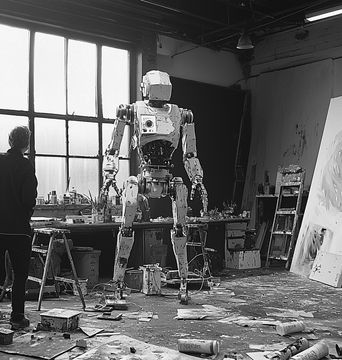COCA-COLA CHRISTMAS AD BOTS GENERATE BACKLASH: CREATORS SLAM 'SOULLESS' AI VIDEO AS BLOOD OF JOBLESS ARTISTS

The Coca-Cola Company is currently under fire as it grapples with a wave of online backlash against an artificial intelligence (AI) created Christmas promotional video. The video, which critics are describing as "soulless" and deficient in creativity, was a collaboration of three AI studios, Secret Level, Silverside AI, and Wild Card.
These studios made use of four different generative AI models to create the content in question. However, artists and creative professionals have voiced their criticism against the use of AI for this video. Their argument centers around the potential replacement of human roles in creativity and art. They are also concerned about fair compensation and credit for the artists whose work was used to train these AI models.
Despite the uproar, Coca-Cola has taken a firm stance, defending its decision and reiterating its dedication to "creating the highest level of work at the intersection of human creativity and technology." This commitment is not new to Coca-Cola as this is not their first time utilizing AI for advertisements. In March 2023, they released an AI-generated commercial called “Masterpiece.”
While some are attributing this backlash to public resistance to AI technology in advertising, marketing experts suggest a more specific cause. They postulate that the backlash might be specific to the Christmas advertisement. This, they argue, may be due to the significant association of the holiday season with the Coca-Cola brand. The use of AI, thus, is perceived as an unwelcome disruption to the traditionally warm, human-produced holiday advertisements that the public had grown to love.
This incident comes on the heels of a similar public outcry earlier in the year against Toys R Us, which had to deal with a backlash over an AI-made commercial. What the Coca-Cola incident highlights, however, is how the public sentiment spans beyond just the toy industry.
This wave of resistance speaks to a much broader concern about the integration of AI in creative fields. When a brand as globally impactful as Coca-Cola is challenged, it hints at an impending, wider reckoning about the role of AI in art and creativity. Companies and artists alike will need to navigate these choppy waters, threading the fine line of experimenting with AI technology and preserving the human touch in creative outputs that people seem to highly value.
The integration of AI in various fields presents an inevitable trajectory into the future. However, as the Coca-Cola incident indicates, the journey towards that future might not be as smooth when it comes to creativity-based industries. The resistance might be a call to more thoughtful use of AI, making sure that while this technology advances, it also respects, credits, and possibly enhances human creativity rather than replacing or discarding it.
Coca-Cola's case and the one that preceded it, therefore, ring as bellwethers for future confrontations between AI-driven innovations and the deep-rooted affinity for human creativity. How businesses respond to these issues today will heavily influence the public acceptance of AI and its role in the creative world of tomorrow.